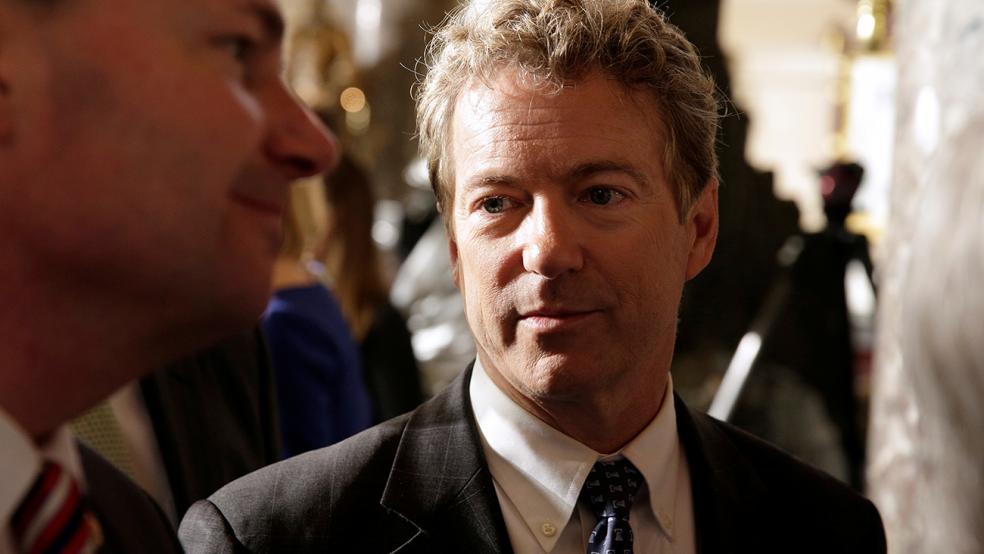The long-awaited release of the Senate’s proposal to repeal and replace the Affordable Care Act started the clock ticking on another countdown: the wait to see how crucial Republicans whose support of the bill is in doubt would react to the 142-page “discussion draft” that was released Thursday morning.
Some members of the Senate who were known to be skeptical about the bill seemed unimpressed by the draft. Sen. Dean Heller, a vulnerable Republican from Nevada who had expressed concern that the cuts in the House bill were too dramatic, told reporters, “At first glance, I have serious concerns about the bill’s impact on the Nevadans who depend on Medicaid.”
Related: Uncertainty Over Obamacare Drives Up Average Premiums 18% Next Year
Maine Sen. Susan Collins and Alaska Sen. Lisa Murkowski, both concerned about the impact of the bill on the needy, indicated through spokespeople that they would take some time to review the bill before taking a position.
Libertarian-leaning Republican senator from Kentucky Rand Paul seemed unhappy with the proposal because it didn’t go far enough in eliminating elements of the Affordable Care Act. “Looks like we’re keeping Obamacare, not repealing it,” he said shortly after a Thursday meeting of the GOP caucus.
Later on Thursday, Paul announced that he and three fellow Republican senators would soon announce their opposition to the bill as written. The loss of those four votes would be more than enough to scuttle the legislation, though the reference to the bill “as written” suggests that Paul and others are looking for leverage to force changes on the bill before it is brought to a vote.
The overall impact the proposal would have on insurance markets in the U.S. won’t really come into focus until the Congressional Budget Office and other experts have the time to assess the various changes it would make to system put in place under the ACA.
Related: Here Are Six Key Differences Between the House and Senate Health Care Plans
Public policy experts warned that the plan would result in millions fewer Americans with health insurance, and that millions of others would face higher costs for less coverage.
Robert Greenstein, president of the Center on Budget and Policy Priorities, said in a conference call with reporters that the bill “will do more harm, to more Americans, than any other legislation in our nation’s modern history.”
Subsidies paid to lower-income Americans, meant to help them afford health insurance sold through the law’s insurance exchanges, will cover notably less of the cost of coverage than they did before. The ACA based subsidies on the cost of a plan that covered 70 percent of the insured’s expected health care expenses. The Senate version would cover 58 percent of those costs.
The subsidies would also phase out further down the income scale than they used to, at 350 percent of the federal poverty level rather than 400 percent.
Under the ACA, subsidies kick in only when people are earning at least 100 percent of the poverty level wage. The Senate plan would allow people with no income at all to be eligible for them. While that may seem generous on its face, it actually represents a reduction in support for many of the poorest Americans. Under the ACA, people not earning at least a poverty level wage were automatically eligible for Medicaid in states that accepted the program’s expansion. The Senate bill would give states the option of taking Medicaid coverage away from them, and forcing them onto an exchange-based plan that only covers 58 percent of their expected costs.
Related: New White House Website Undermines Affordable Care Act
The Senate bill, assuming that it can gain the 50 Republican votes it needs to pass under the chamber’s reconciliation rules, would have to be reconciled with the House-passed version of the American Health Care Act.
The bill passed by the House is remarkably unpopular with the public, and in the more than a month since it was passed, multiple Republican senators have sought to reassure their constituents that the upper chamber would produce a more acceptable proposal.
The version released Thursday, though, arguably worsens many of the elements of the House version that contributed to its unpopularity.
The CBPP’s Greenstein echoed many analysts who were getting their first comprehensive look at the Senate plan on Thursday, saying, “I am stunned that overall the bill they have produced is harsher and will do even more damage than the House bill.”





